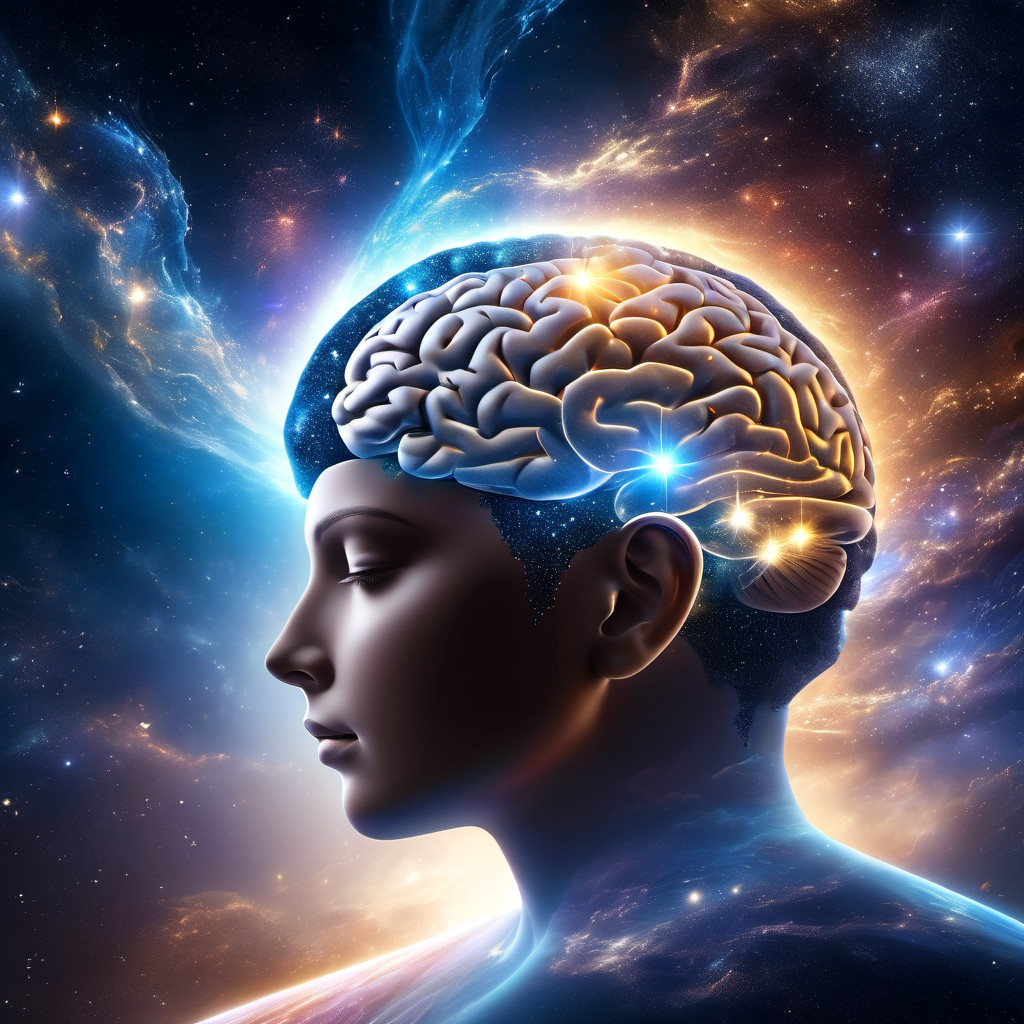In its proper place, the mind is not the enemy of spirituality

One of the great spiritual errors of this age, which has caused much confusion and spiritual blundering, is the idea that the mind is the enemy of spirituality. Like one of our other great errors, the spiritualisation of money, the demonisation of the mind is the result of a well-meaning but misguided rebellion against other errors of the past. In this case, the chief errors being rebelled against are the over-intellectualisation and dogmatisation of spirituality promoted by organised Christianity, as well as the modern ultra-rationalist denial of the spiritual realities back of the physical world.
It is absolutely true that the mind run rampant is an enemy to spiritual advancement. It is equally true that even the most advanced and spiritually inclined intellect will never progress beyond a certain point of evolution until it is prepared to quieten itself and listen for the inspirations that come from beyond the rational plane.
But like the rebellion against Christianity’s poverty fetish, the rebellion against the mind has led to an equal and opposite error, which is the idea that because all true spiritual inspirations come in the form of a feeling, therefore all feelings of a spiritual nature must be true inspirations, and any rational analysis of them is simply an attempt by the ego to stifle them. We are susceptible to be gravely misled spiritually unless we have the intellectual discernment to understand the difference between experiences and promptings that come from a higher source, and those that come from our fragile human emotions, or the anarchic world of the psychic plane.
Certainly, spontaneus spiritual awakenings do happen to people who have no intellectual bent whatsoever. However, we have no way of knowing what these people experienced in previous lifetimes. Perhaps they’ve done all their intellectual growth already and the Universal Spirit, knowing the intellectual phase is a barrier – and sometimes one that is difficult to transcend – reincarnated them as far away as possible from any intellectual temptations. This way, the evolutionary growth of their soul would remain, even if the counscious knowledge gained from the intellectual phase was lost at the moment of rebirth. This explains men like Sydney Banks, the uneducated Scottish welder who experienced a spontaneous spiritual awakening and spent the rest of his life attempting to convey his experience to others. Banks was forever urging his audience to go beyond his words and grasp the spiritual truth behind them, which he described as a feeling.
Nevertheless, Banks’ words helped many. Words, of course, are a product of the intellect. They are not the truth itself, but they can be an effective signpost towards the truth. Spiritual truth may be a feeling, but you cannot just take any old feeling and assume it to be truth. The mind is the signpost, or the compass, that points your feeling faculty in the right direction.
Most of modern popular spirituality is pure feeling, with little in the way of reason to guide it. The classic picture of such a state is the soul who is primarily concerned with the physical world, but who seeks worldly advantage or a lessening of suffering by carrying crystals as lucky charms, calling upon angels and guides, using tarot cards or visualising money. This is not to criticise any of these practices, as they may be entirely appropriate and useful at a particular stage of a soul’s journey. But they should not be regarded as superior to the intellect purely because they may superficially appear to be more spiritual. Some of these things work, either because the user’s belief coincidentally overlaps with the truth, or simply because the belief makes it true.
In David Hawkins’ book Power vs. Force, which is surely the closest thing we have to a scientific study of spiritual evolution, such rudimentary spiritual practices as these fall into the level of consciousness between 200 and 400. Souls at this level of evolution have clawed their way out of victimhood and submission to circumstances, and have begun their first tentative steps towards self-empowerment. But they do not yet possess a rational understanding of the workings of the universe, and settle for whatever beliefs or practices feel good to them. It is only at the level of 400 – designated by Hawkins as the level of Reason – that the soul moves beyond the superficial and pretty spiritual beliefs of the day and into the understanding of the laws that govern all these beliefs.
Some souls get carried away by this newfound intellectual power, and attempt to reverse-engineer spiritual abilities for personal gain through the use of formulas and specific energetic practices. Historically, this type of practice was called sorcery, magic or witchcraft. Other souls stuck in the intellectual phase have more benevolent intentions, but the mind refuses to let go and allow the profounder spiritual experiences that occur beyond the plane of the rational to take place.
The parable of the wedding feast, from the twenty-second chapter of Matthew, instructs us on the necessity of unifying the different aspects of the human constitution – body, mind and soul. In Chapter 10 of Bible Mystery and Bible Meaning by Thomas Troward, the author reads the parable as a warning against the purely intellectual use of spiritual forces for personal gain, without love as the guiding principle. My own understanding of this parable encompasses Troward’s but takes it further. The wedding feast is a symbol of spiritual enlightenment, also referred to by Christ as the Kingdom of Heaven. A wedding feast takes place after a union, and nobody is invited to partake of the feast until the union is complete. If man has not wholly united the trinity of the human experience – body, mind and soul – then he does not possess a wedding garment and is not invited to the feast. The servants will bind him hand and foot and cast him into the exterior darkness. In Troward’s example, this binding of hand and foot represents the tremendous and dreadful karmic consequences resulting from the misuse of spiritual forces for personal gain. In this example, the mind is dominant and love, or the spiritual factor, is missing. As I have written previously, we simply cannot move into the higher spiritual realms until we proactively cultivate love.
In the opposite scenario, a person attempts to hijack the spiritual realm without first passing through the intellectual phase. If they make no tremendous effort then their beliefs will remain airy and they will not progress much in the spiritual life. However, some people take a more aggressive approach – and the most obvious example of this is the use of psychoactive drugs to induce spiritual experiences.
The spiritual lecturer Alan Watts characterised the typical mumblings of 60s LSD junkies describing their experience as “It was a gas, man.” As Watts pointed out, they were attempting to describe an experience to wider society, when they did not even fully comprehend the experience themselves – thus making themselves look like bumbling eccentrics to most ordinary people. Many people who had such experiences in the 60s found themselves ostracised by their experiences and drifted away from society, finding that it no longer made any sense of them – but sadly they lacked anything higher to cling to that might help to decode the experience and lead them on their upward journey. As a result, many of them lost all will for anything besides finding fellowship with other societal outcasts and taking more drugs. Hardly the road to enlightenment – and yet this is the best case scenario.
We’ve all heard the stories about people who used psychoactive drugs and ended up irreversibly psychotic, believing themselves to be God or Jesus. The drugs artificially induced a sensible experience of the person’s innate divinity, but the unfortunate soul could not understand that this divinity is in all, and that the ego must die to make room for the God within. Instead, its ego remained and became intoxicated with the idea that it is the one and only God, presiding above all.
The bible describes the three stages of spiritual development allegorically in Genesis, where Esau represents gross sensuousness, Jacob represents the intellectual phase, and then after wrestling with the angel, Jacob becomes Israel – the enlightened spiritual consciousness. I will return to this topic in future articles, but for the moment I recommend Chapters 9-11 of Jack Ensign Addington’s Hidden Mystery of the Bible, which delve into this topic in greater detail.
In order to ascend to great spiritual heights, one must fill the mind with wisdom, then move past it. It cannot be the ruling faculty of our lives, but it must always guide our ascent into the higher spiritual realms. In its proper place, the mind is our greatest ally in our forward evolutionary journey.
